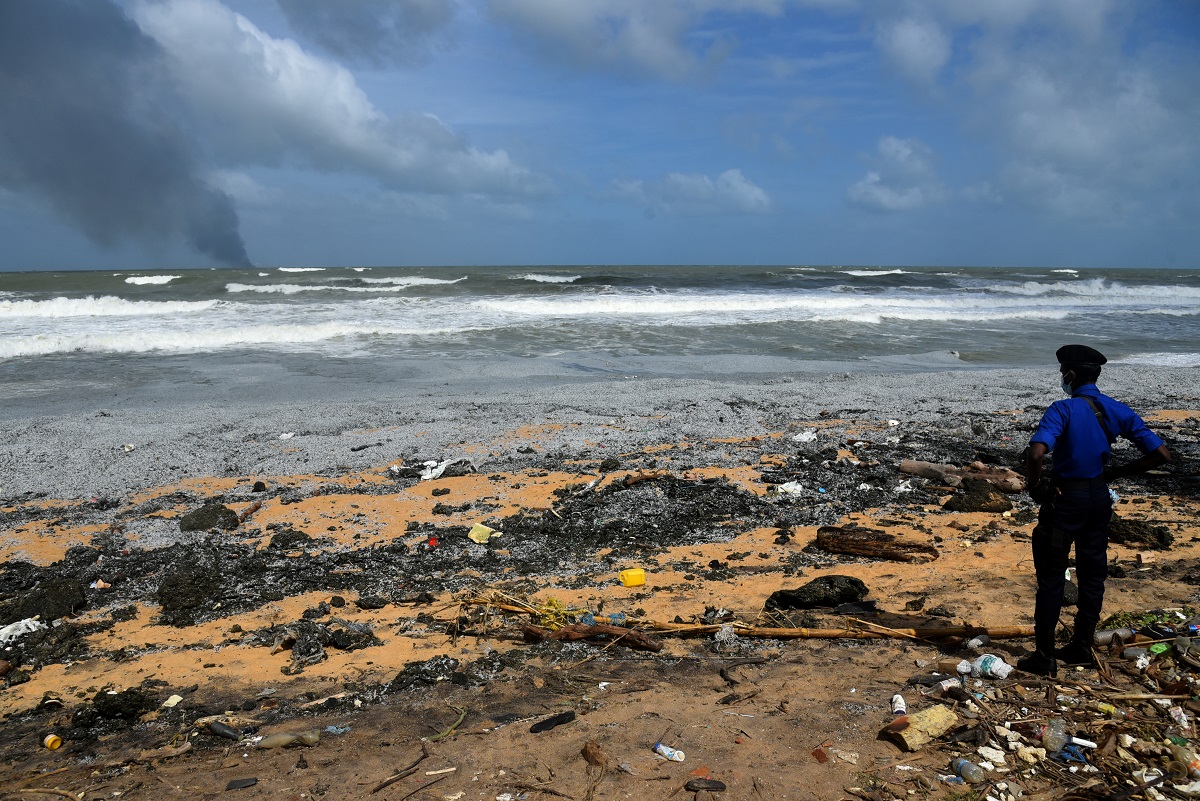Sri Lanka to studies a command chain to prevent maritime disasters
The accidents involving the MT New Diamond and X-Press Pearl have exposed "delays and inadequacies" in the country’s environmental protection system. Ocean waters are crucial for the fishing sector. Legal and regulatory frameworks also have serious shortcomings.
Colombo (AsiaNews) – Sri Lanka lacks the capacity to prevent maritime disasters, this according to a recently published report by the Parliamentary Select Committee (PSC), centred on the investigation into two of the worst incidents for the environment, namely the MT New Diamond and X-Press Pearl maritime disasters.
Delays in legal procedures, a lack of clear protocols to engage local communities in disaster response efforts, and inadequate coordination between government agencies, compounded the environmental and economic damage caused by the incidents.
Major shortcomings in the existing legal and regulatory frameworks, and slow preparedness and response mechanisms by relevant authorities contributed to the disasters.
The X-Press Pearl disaster highlighted gaps and critical issues in the country's ability to prevent and manage accidents at sea and the impact of water pollution.
If the Indian port of Hazira had alerted Colombo Port of the nitric acid leak on board the incoming ship, the disaster could have been prevented.
For this reason, Sri Lanka should introduce Certificate of Departure (CoD) from ports before the acceptance of ships in its territorial waters and above all before entering any of the country’s ports.
Experts also stress the need “for stricter penalties for ship operators and owners who fail to comply with safety regulations, and improve international collaboration to prevent future disasters.”
“It is necessary for Sri Lankan agencies involved in ocean-related matters to establish and recognize a Rapid Action Command Chain to produce and submit quarterly reports on the activities and status of Sri Lanka’s maritime zones to Parliament.”
Implementing an advanced ship tracking and monitoring system, with real-time data on cargo conditions, weather patterns, and ship movements, would help “early detection of potential risks” and allow for “timely intervention.”
The Select Committee submitted the report to Parliament last month.
The “two disasters have caused severe and long-lasting damage to Sri Lanka’s marine environment,” said Sachini Galapatti and Nalinda Hewawitharana, scholars based in Queensland, Australia, speaking to AsiaNews.
“According to the International Pollutants Elimination Network, due to the X-Press Pearl disaster, tons of plastic pellets and other pollutants were washed up on the country’s beaches and harmed its marine ecosystem”.
The cargo included billions of plastic pellets that ended up in the water, damaging the ecosystem, the tourism industry, and the nation's reputation as a "green" destination.
One of the consequences of the accident includes “oil spills and hazardous chemicals, that impacted marine life, coastal ecosystems, and local communities dependent on these resources.”
According to an analysis based on the International Dangerous Goods at Sea (IMDG) Regulations, the cargo manifest showed that at least 81 of the 1,486 containers on board the MV X-Press were carrying 15 distinct categories of hazardous materials, including “25 tons of nitric acid".
These disasters have had a serious impact on Sri Lanka’s fishing industry, affecting about 16,000 fishermen and more than 20,000 households.
In addition, the spillage of dangerous chemicals killed over 300 marine animals, including turtles, dolphins, and whales.
For senior scholars Navindra Igalawithana and Oshantha Samarasekara, the “responses to both disasters was marked by delays and inadequacies, especially in terms of immediate actions to mitigate the environmental impact.”
One problem is the lack of preparedness and insufficient resources, which highlights critical shortcomings in the management of these crises.
One proposal is to establish a “dedicated Ministry for the Ocean of Sri Lanka and the unification of maritime agencies under a single administrative framework to improve coordination during emergencies.”
For the two scholars, “It is also necessary to strengthen the legal frameworks,” advance “oceanographic research," and establish “a Coast Guard Maritime Agency within the Navy to strengthen maritime security. Regular inspections and audits of vessels carrying dangerous goods should also be mandated.”
07/11/2022 13:36
08/06/2021 16:40







.png)










